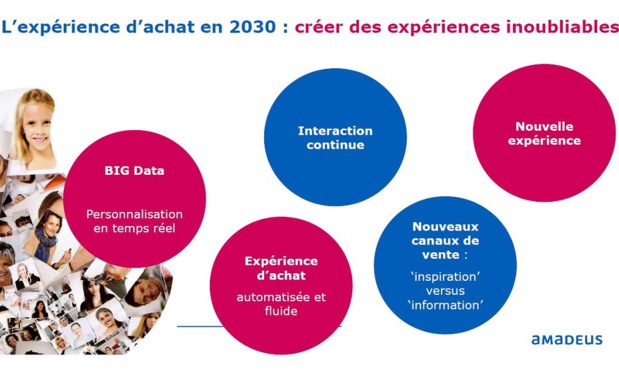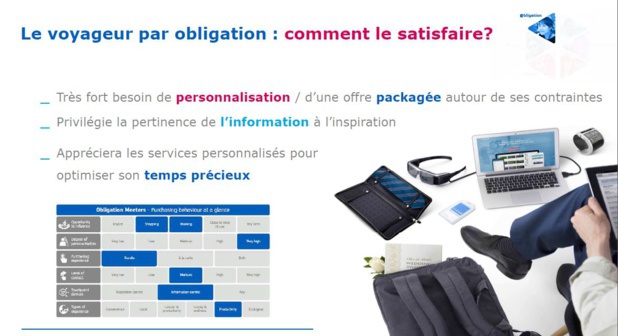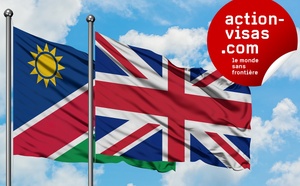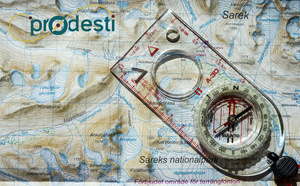
Amadeus tries to imagine how and why tourists will travel in 2030 - DR : Amadeus
“The study is a projection for the upcoming 15 years,” warns Georges Rudas, President and Executive Director of Amadeus France.
In 2030, the number of travelers on international lines will double every year.
China will become the first global economy. And the median age of the population will have gone from 29.6 to 33.2 years old.
The motivations and behavior of people will have strongly evolved.
How will the travel industry have to adapt its strategy to commercialize its services more efficiently and to respond to the unique needs of new travelers?
This is the question that this behavioral study hopes to answer, it has two facets.
The first,"Future Traveller Tribes 2030 : understanding tomorrow’s traveller,” written by The Future Foundation defines six “tribes of travelers” (see box);
The second, "Future Traveller Tribes 2030 : building a more rewarding journey,” explores the ways tourism professionals can meet the new demands of these different profiles.
In 2030, the number of travelers on international lines will double every year.
China will become the first global economy. And the median age of the population will have gone from 29.6 to 33.2 years old.
The motivations and behavior of people will have strongly evolved.
How will the travel industry have to adapt its strategy to commercialize its services more efficiently and to respond to the unique needs of new travelers?
This is the question that this behavioral study hopes to answer, it has two facets.
The first,"Future Traveller Tribes 2030 : understanding tomorrow’s traveller,” written by The Future Foundation defines six “tribes of travelers” (see box);
The second, "Future Traveller Tribes 2030 : building a more rewarding journey,” explores the ways tourism professionals can meet the new demands of these different profiles.
Customization and Big Data
“Future Traveller Tribes 2030” combines every family of travelers to the nine steps of the trip. George Rudas hopes to help tourism professionals “make the traveler’s experience more fluid and to extract additional revenues from it.”
Of course, the “Big Data” will enable travel professionals to customize their offers in realtime depending on each traveler. “695 million passengers transit in our system, that’s a lot of data,” adds Georges Rudas.
“To avoid travelers feeling overloaded with information, the study details the key moments of communication for each tribe.”
Thanks to the data, airline companies, service providers such as travel agents or conciergerie services, will aim to provide a custom-made experience in each step of the trip.
“The Amadeus platform is more and more open to connect relevant content such as blogs or offers from players of the collaborative economy.
It is a very large market, there is still everything to invent. It is also a great source of opportunity to develop margins thanks to cross-selling.
We have a partnership with CabForce, an aggregator of tourism vehicles with chauffeur.
Other key players of the collaborative economy consult us to see how we could integrate them.
We also work with Facebook around social seating for instance, this enables to see if a passenger can be seated next to a Facebook friend who is on the same flight.
The solutions get richer and richer, and can be used by all of our clients.”
Of course, the “Big Data” will enable travel professionals to customize their offers in realtime depending on each traveler. “695 million passengers transit in our system, that’s a lot of data,” adds Georges Rudas.
“To avoid travelers feeling overloaded with information, the study details the key moments of communication for each tribe.”
Thanks to the data, airline companies, service providers such as travel agents or conciergerie services, will aim to provide a custom-made experience in each step of the trip.
“The Amadeus platform is more and more open to connect relevant content such as blogs or offers from players of the collaborative economy.
It is a very large market, there is still everything to invent. It is also a great source of opportunity to develop margins thanks to cross-selling.
We have a partnership with CabForce, an aggregator of tourism vehicles with chauffeur.
Other key players of the collaborative economy consult us to see how we could integrate them.
We also work with Facebook around social seating for instance, this enables to see if a passenger can be seated next to a Facebook friend who is on the same flight.
The solutions get richer and richer, and can be used by all of our clients.”
A traveler with mobile access
In a near future, travelers will be connected anytime of the day through their various electronic objects.
The smartphone has indeed enabled to intensify this connectivity and in 2030, there will be very few places without internet.
The buying process will become progressively automated. Smartphones, portable biometrics, and electronic wallets will render the payment process faster and easier.
New selling channels will emerge simultaneously and will be able to be divided between the “inspiration” channels (smartphone, tablets, virtual reality headphones), offering even more immersive experiences and used as new discovery tools; and the “information” channels (smartwatch, connected glasses and robots) that will focus on the content and the purchase rather than discovery.
The smartphone has indeed enabled to intensify this connectivity and in 2030, there will be very few places without internet.
The buying process will become progressively automated. Smartphones, portable biometrics, and electronic wallets will render the payment process faster and easier.
New selling channels will emerge simultaneously and will be able to be divided between the “inspiration” channels (smartphone, tablets, virtual reality headphones), offering even more immersive experiences and used as new discovery tools; and the “information” channels (smartwatch, connected glasses and robots) that will focus on the content and the purchase rather than discovery.
What are the 6 “traveler tribes” that will emerge in the next 15 years?
The study identified different traveler profiles:
Those looking for social capital: they will structure their vacations almost exclusively thinking about their online audience. They will massively trust the comments of other travelers and will follow recommendations to validate their decisions. These are the young generations.
Culture purists: they will consider vacations as an opportunity of immersing in a foreign culture, even if it is uncomfortable.
The pleasure received from these vacations will depend on the authenticity of the experience. They are the ones who use Airbnb for instance.
The ethical travelers: they will plan their trips based on moral considerations, for instance by reducing their energy footprint and by improving the life of others.
They will often give way to improvisation or will add some volunteering actions, community development, or eco-sustainably to their vacations.
Travelers looking for simplicity: they will prefer grouped offers to avoid having to manage too many details on their own.
For this tribe of travelers, vacations represent such a rare parentheses that they want to enjoy them to the fullest while knowing that everything will go according to plan.
Travelers by obligation: they will travel primarily out of obligation, whether for professional or familial reasons, with an imposed date and destination.
This tribe will have constraints of time and budget and will look for a technology that allows to eliminate the inconveniences of the trip.
Reward travelers: they will be looking for luxury and exclusivity. They will aspire to a unique “must live” experience. A return on investment in terms of time and energy they spend in their professional life.
On the French market, the categories of travelers are ranked in the following order: the culture purists, those looking for simplicity, obligation traveler, those that like to be rewarded, those looking for social capital, and finally ethical travelers.
“There can also be some trans-category profiles, meaning those that mix two tribes. This is the case when we speak about the “business leisure”: the business traveler who extends his professional stay to discover the city,” specifies Georges Rudas.
Those looking for social capital: they will structure their vacations almost exclusively thinking about their online audience. They will massively trust the comments of other travelers and will follow recommendations to validate their decisions. These are the young generations.
Culture purists: they will consider vacations as an opportunity of immersing in a foreign culture, even if it is uncomfortable.
The pleasure received from these vacations will depend on the authenticity of the experience. They are the ones who use Airbnb for instance.
The ethical travelers: they will plan their trips based on moral considerations, for instance by reducing their energy footprint and by improving the life of others.
They will often give way to improvisation or will add some volunteering actions, community development, or eco-sustainably to their vacations.
Travelers looking for simplicity: they will prefer grouped offers to avoid having to manage too many details on their own.
For this tribe of travelers, vacations represent such a rare parentheses that they want to enjoy them to the fullest while knowing that everything will go according to plan.
Travelers by obligation: they will travel primarily out of obligation, whether for professional or familial reasons, with an imposed date and destination.
This tribe will have constraints of time and budget and will look for a technology that allows to eliminate the inconveniences of the trip.
Reward travelers: they will be looking for luxury and exclusivity. They will aspire to a unique “must live” experience. A return on investment in terms of time and energy they spend in their professional life.
On the French market, the categories of travelers are ranked in the following order: the culture purists, those looking for simplicity, obligation traveler, those that like to be rewarded, those looking for social capital, and finally ethical travelers.
“There can also be some trans-category profiles, meaning those that mix two tribes. This is the case when we speak about the “business leisure”: the business traveler who extends his professional stay to discover the city,” specifies Georges Rudas.

The example of the obligation traveler (c)Amadeus.com/tribes2030




























![Vraies tendances ou illusions : radiographie d'un monde en recomposition [ABO] Vraies tendances ou illusions : radiographie d'un monde en recomposition [ABO]](https://www.tourmag.com/photo/art/large_16_9/93540809-65355472.jpg?v=1767624066)















